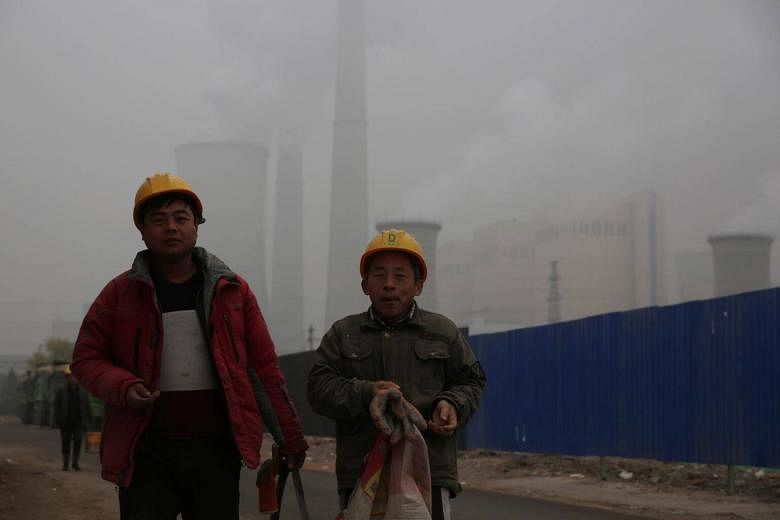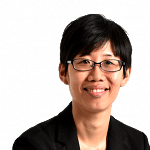SHANGHAI - Ms Fang Hongqin came to Shanghai as a young woman and has been living and working here for 26 years.
But the freelance housekeeper, now 48, has no plans to retire in the metropolis, as she does not enjoy any of the city's welfare benefits.
Her health insurance is for going to hospitals in her hometown in neighbouring Jiangsu province, which is a 4½-hour drive from downtown Shanghai. And her pension will be paid by her local county authorities when she reaches 60.
Ms Fang is one of the hundreds of millions of migrant workers who flocked to the cities in search of work and better opportunities after restrictions on migration were loosened in the 1980s.
China had just embarked on a series of economic reforms that saw it open its economy, court foreign investments and industrialise rapidly.
Demand for cheap labour spiked as factories and private enterprises mushroomed in the coastal cities.
But these migrant workers are practically like second-class citizens in their own country as they work and live outside of their officially registered locales.
SECOND-CLASS CITIZENS BORNE OUT OF HUKOU SYSTEM
China operates on a hukou system, a form of household registration that could be traced back thousands of years for the purpose of taxation, population control and military conscription.
Under the current system, introduced in 1958, people are categorised as nongmin (rural dwellers) or shimin (urban dwellers), and the registration is also tied to the place where they were born.
During China's centrally planned economy era, the system was used as a key instrument to regulate access to jobs and public benefits.
Despite easing restrictions to let people move around freely for work and study, migrant workers like Ms Fang have no access to local welfare such as healthcare, education for their children and unemployment benefits, as they are not officially registered as permanent residents in the cities where they work.
Ms Fang recalled that when she first moved to Shanghai in the early 1990s with her husband, jobs were still limited for migrant workers.
The couple bought and resold second-hand goods and electronics for a living until her husband's sudden death in the mid-2000s. She then worked for a cleaning firm for seven years before venturing out on her own, taking on freelance cleaning and housekeeping jobs.
"There is no work in the villages. We grow crops for subsistence and if the crops fail, then we will be left with nothing," she said.
"Working in a big city, at least we can see some money coming in every day even though work can be unstable," she added.
TWO GENERATIONS OF LEFT-BEHIND CHILDREN
Ms Fang gave birth to her only son in 1994 in Shanghai. But as she has no local hukou, she had to take him back to her hometown to have his birth registered.
He was left behind to be raised by his grandmother while Ms Fang worked in Shanghai. He came to the city to live with his mother only during the summer holidays.
"He couldn't go to the public school here without a local hukou and I simply couldn't afford to send him to a private school," she said.
Ms Fang noted that private school fees could cost up to 3,000 yuan (S$600) a year, an amount she used to send home to pay for a whole year of expenses.
Several years ago, her son also moved to Shanghai to work and has since gotten married.
But Ms Fang does not want him to start his family too soon, as she hopes to work for another year or so to save enough money to pay off her mortgage back home.
"Then I will retire and take the baby back to our hometown," she said.
CALL TO REFORM OR DISMANTLE HUKOU SYSTEM
After more than three decades of mass migration, the migrant population is still huge, standing at around 245 million as of 2016, after falling from a peak of 253 million in 2014.
The migrants tend to flock to large city clusters along China's coasts, major rivers and railways.
But unlike Ms Fang's generation of migrants, they now tend to move with the whole family. This further exacerbates the problem of lack of access to public services such as education and healthcare for these non-local hukou holders.
Observers have pointed out that China's status as the world's No. 2 economy came largely on the back of this massive migrant workforce.
Yet very little is done to provide these workers with basic protection and rights.
In recent years, the government has taken steps to improve the hukou system, most notably to make it easier for migrant workers to obtain urban hukou in smaller cities.
But this has not proven to be too popular with the migrant workers who prefer hukou in the large cities or sticking to their rural hukou, which is tied to farmland that is getting increasingly valuable.
For large cities like Beijing and Shanghai, the local authorities have rolled out a competitive points system to let people get local hukou.
Even then, this benefits only well-educated "new immigrants" rather than migrant workers, who can never qualify, given the stringent requirements.
Some have maintained that for China to achieve "real urbanisation" and to have a fair system for all its people, it should dismantle its hukou system altogether.
Beijing-based economist Hu Xingdou thinks that an abolishment of the hukou system will be good for the economy.
"Some people say that China's demographic dividend is diminishing but there's actually a lot of excess labour still left in the countryside," he said.
He noted that increasingly, many young people prefer to stay in the villages to play mahjong all day rather than move to the cities to work.
Doing away with the hukou system, coupled with policies to train them to be skilled workers, could unleash a sizeable source of labour for the economy, he added.
Ms Fang is not hopeful of seeing any major changes in the near future.
"Besides, the Chinese Communist Party's policies keep changing," she said.
"I won't be able to get a city hukou in my lifetime. Let's see if my son is able to do that in future."


